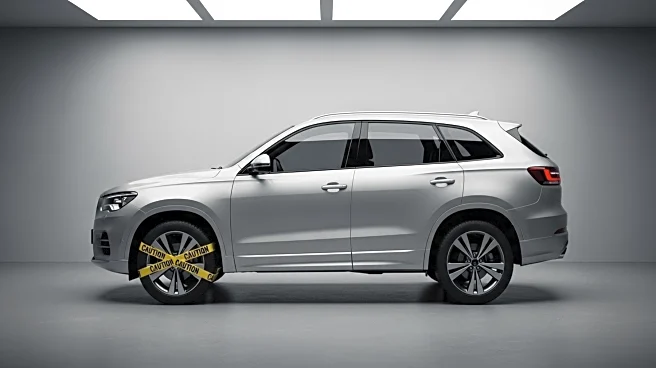What is the story about?
What's Happening?
Chrysler has issued a recall for more than 90,000 Jeep Grand Cherokee vehicles due to a software error that may lead to a loss of drive power, potentially causing crashes. The recall affects 2022 to 2026 plug-in hybrid electric models, totaling 91,787 vehicles. The U.S. National Highway Traffic Safety Administration (NHTSA) reported that the error in the hybrid control processor could result in unexpected loss of propulsion, posing a crash risk without prior warning. Chrysler has stated that, as of August 18, there have been no reported injuries or accidents related to this defect. Stellantis, Chrysler's parent company, has not provided immediate comments. The NHTSA is developing a remedy, and affected Jeep owners will receive notification letters starting October 23. Vehicle identification numbers (VINs) can be checked on the NHTSA website from September 11.
Why It's Important?
This recall highlights significant safety concerns for owners of the affected Jeep Grand Cherokee models, emphasizing the importance of addressing software errors in modern vehicles. The potential loss of drive power could lead to serious accidents, impacting consumer trust in Chrysler's hybrid technology. The recall also underscores the broader industry challenge of ensuring software reliability in increasingly complex automotive systems. For Chrysler, resolving this issue promptly is crucial to maintaining brand reputation and customer safety. The recall may also influence regulatory scrutiny and future safety standards for hybrid and electric vehicles.
What's Next?
Chrysler is expected to expedite the development of a solution to rectify the software error. Jeep owners will be informed of the recall and advised on steps to take, including checking their vehicle's VIN on the NHTSA website. The automotive industry may see increased focus on software testing and validation to prevent similar issues. Regulatory bodies might push for stricter safety protocols for hybrid and electric vehicles. Consumer advocacy groups could call for more transparency in vehicle safety reporting and recall processes.
















